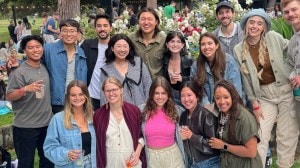‘Mega Science Vision Document-2035 to make students industry-ready, employable’
Praveer Asthana, senior adviser at the office of the Principal Scientific Adviser, was speaking virtually on the closing day of the 40th meet of the Astronomical Society of India (ASI).
 India is currently enrolled in at least six mega science projects and has several industries working on technology development for these projects.
India is currently enrolled in at least six mega science projects and has several industries working on technology development for these projects.The proposed Mega Science Vision Document-2035, an effort led by the office of the Principal Scientific Adviser (PSA) to the government of India, aims to make students more industry-ready and employable, said Praveer Asthana, a senior adviser at the PSA’s office.
He was speaking virtually at the ‘Industry-Academia Interface’, a session organised on the closing day of the 40th meet of the Astronomical Society of India (ASI) at IIT-Roorkee.
“There are more opportunities for scientists to engage and work on industry-oriented research through incubators and special doctoral programmes aimed at facilitating more interactions,” Asthana said Tuesday.
India is currently enrolled in at least six mega science projects and has several industries working on technology development for these projects. Larson and Toubro Limited, for instance, is working on the Thirty Metre Telescope coming up in Hawaii.
On most occasions, scientists have noted that technologies required for mega science projects are not readily available and that is where the industry can play a key role, Asthana said. “We need the industry to share ideas along with expectations they have from the government and academic institutions while planning to work on science projects,” he said.
Anand Deshpande, founder of Persistent Systems, Laxmesh B H from L&T and S K Sinha from the Indian Institute of Science (IISc) in Bengaluru interacted with the participants on career opportunities, industry requirements and skill sets needed for present-day jobs.
The industry and academia work on different time scales, one of the main diverging factors preventing greater collaborations between the two, the experts noted. “Academic institutions cannot develop products but can provide scientific knowledge to the industry,” said Sinha, who established the start-up Labs to Innovations at IISc.







